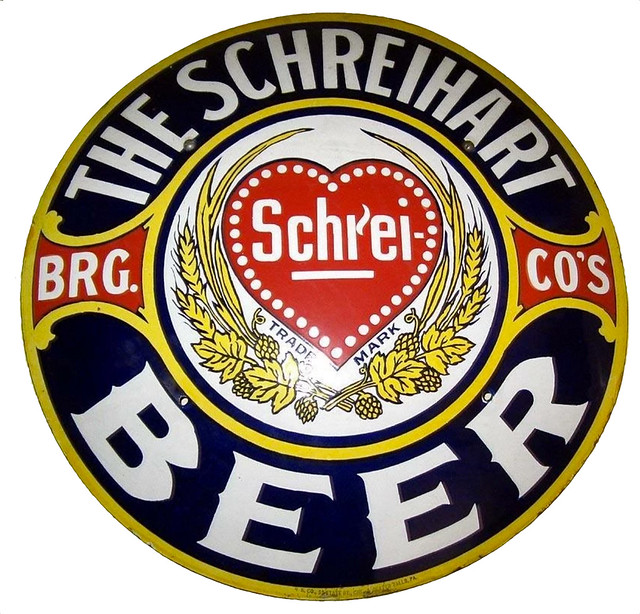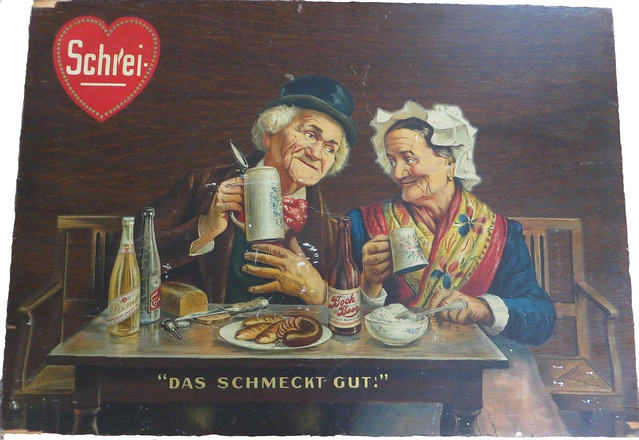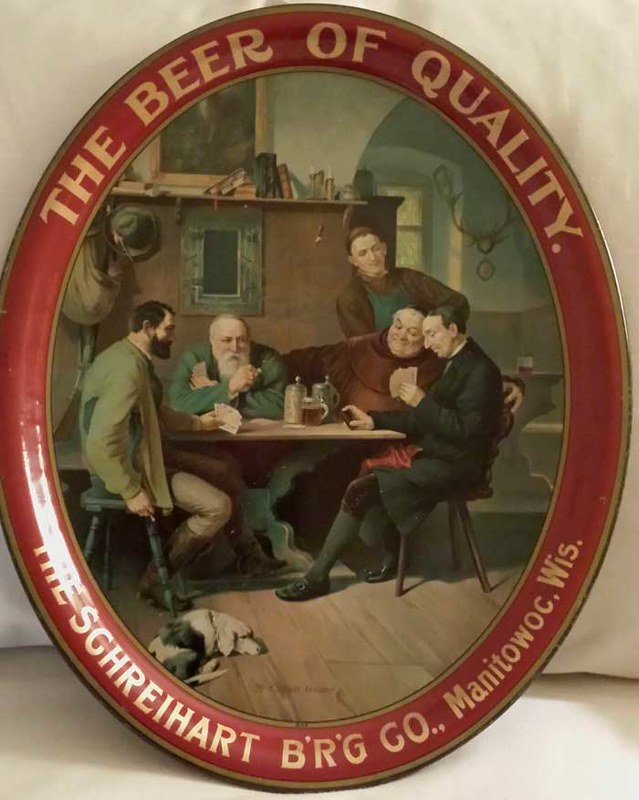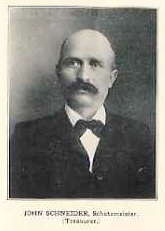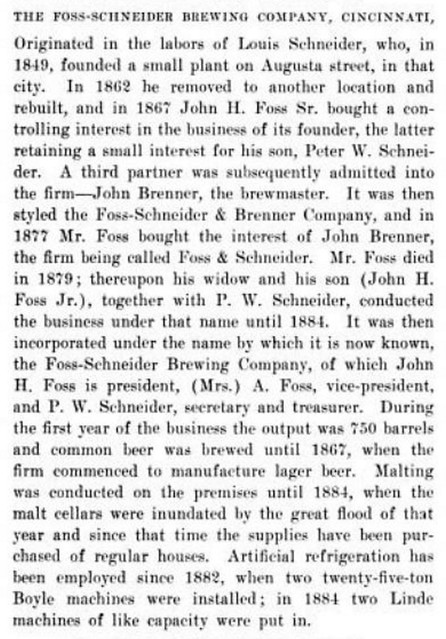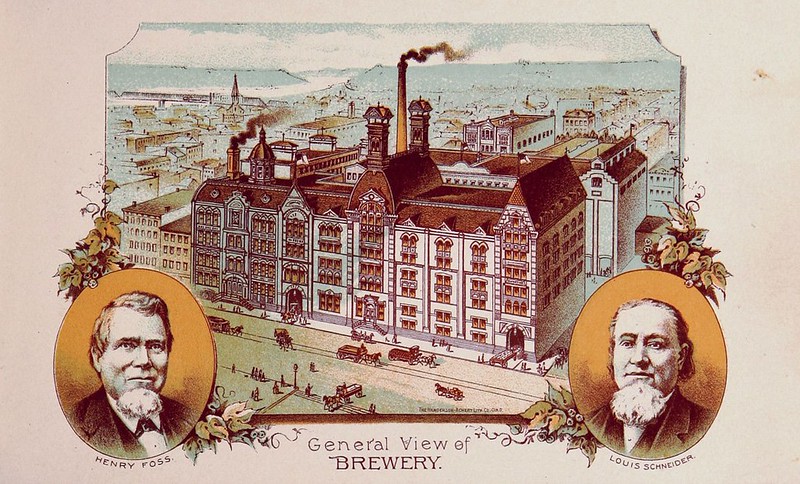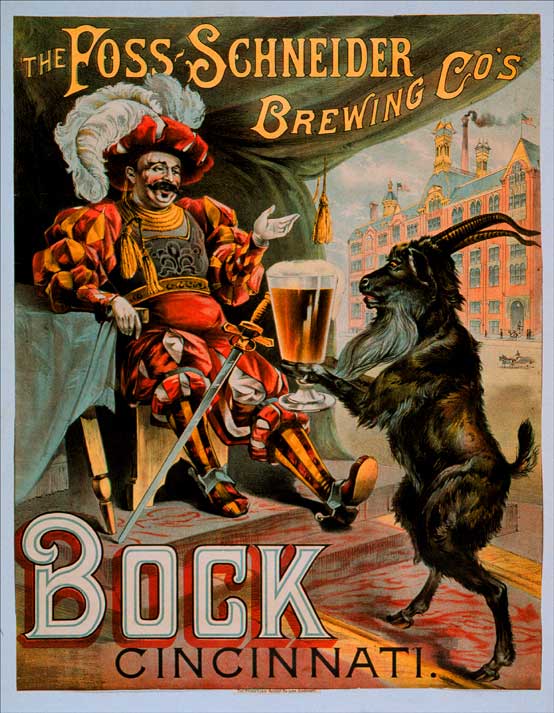
Last year I decided to concentrate on Bock ads. Bock, of course, may have originated in Germany, in the town of Einbeck. Because many 19th century American breweries were founded by German immigrants, they offered a bock at certain times of the year, be it Spring, Easter, Lent, Christmas, or what have you. In a sense they were some of the first seasonal beers. “The style was later adopted in Bavaria by Munich brewers in the 17th century. Due to their Bavarian accent, citizens of Munich pronounced ‘Einbeck’ as ‘ein Bock’ (a billy goat), and thus the beer became known as ‘Bock.’ A goat often appears on bottle labels.” And presumably because they were special releases, many breweries went all out promoting them with beautiful artwork on posters and other advertising.
Monday’s ad is for Lisner Bock Beer, which was published on June 30, 1915. This one was for the Simon Linser Brewing Co. of Zanesville, Ohio, which was originally founded in 1846. This ad ran in the Times Recorder, also of Zanesville, Ohio.


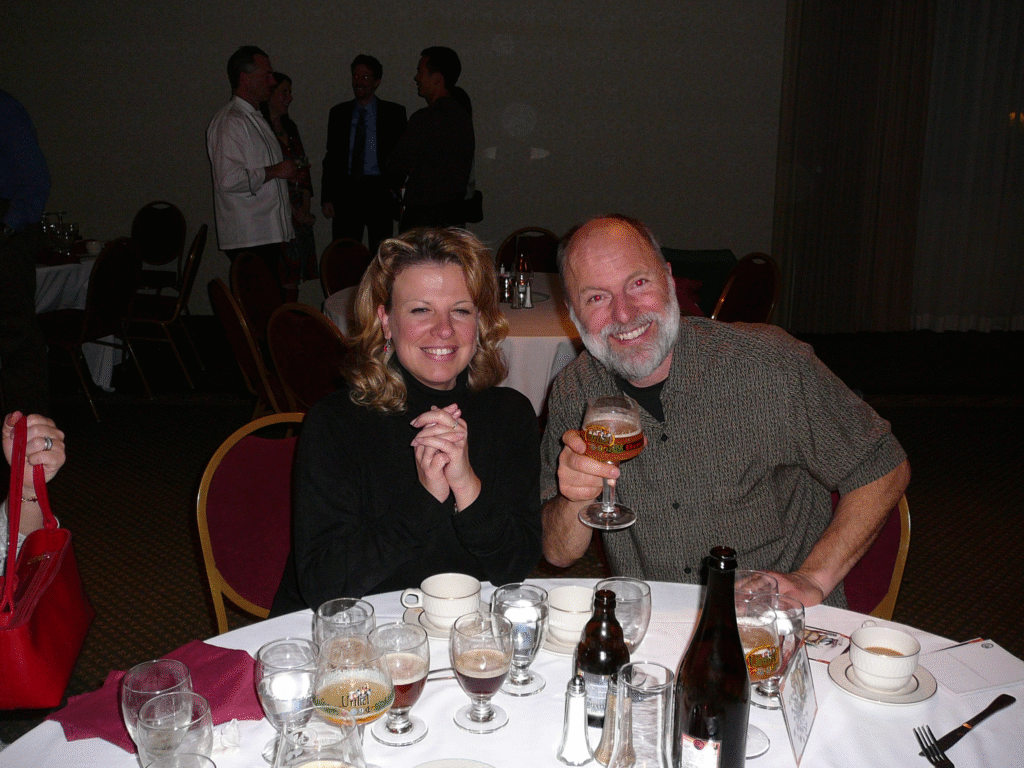

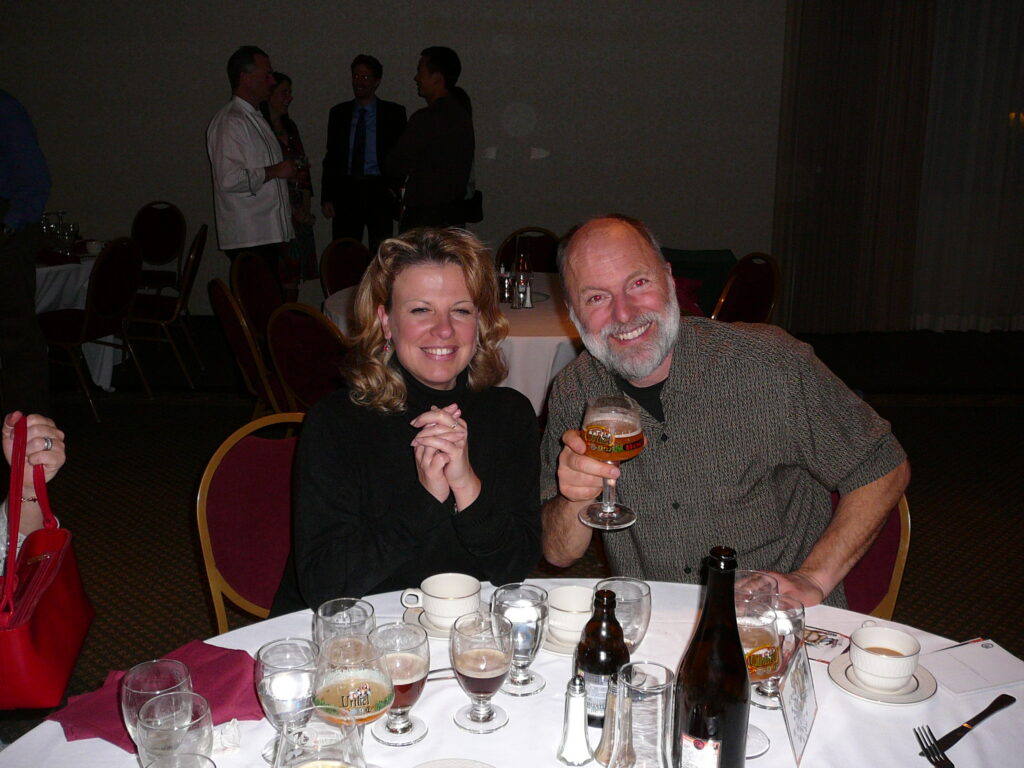
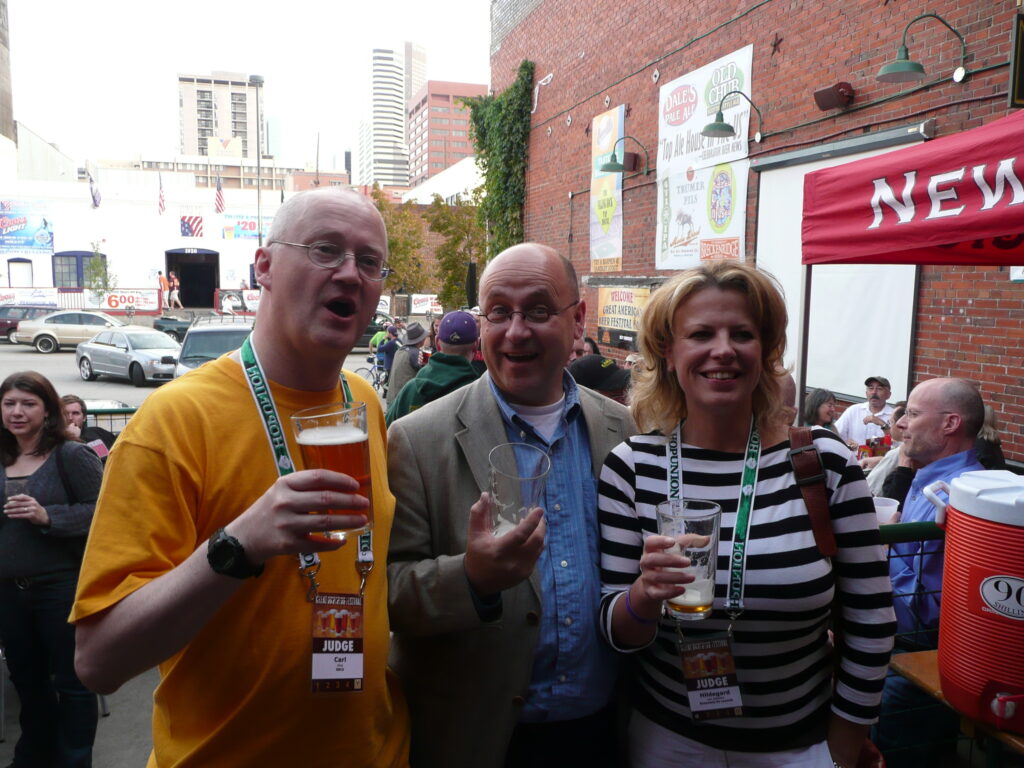

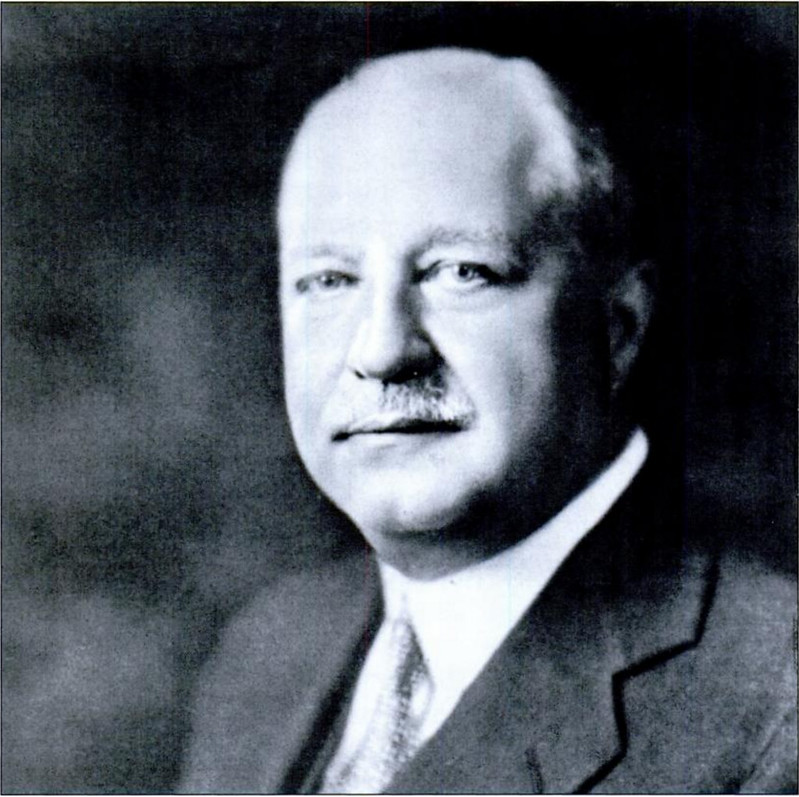
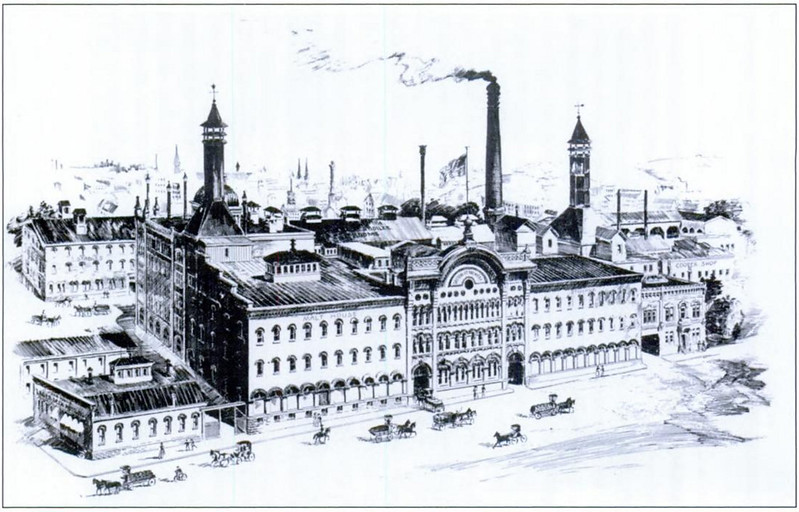
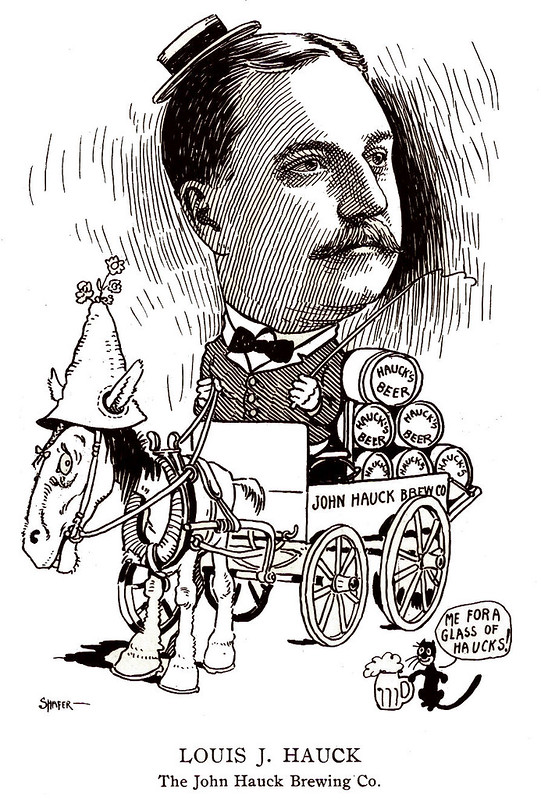


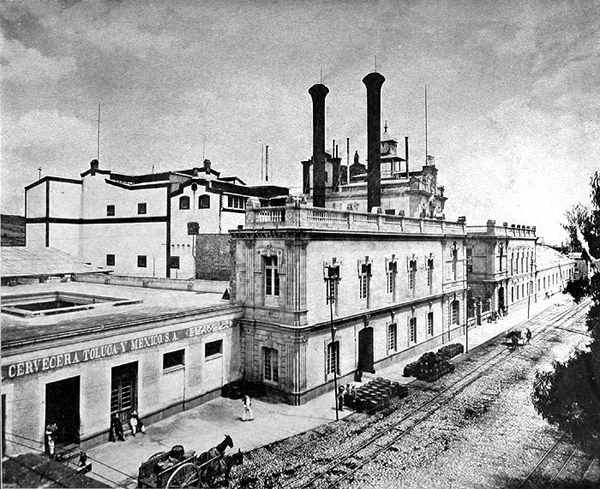

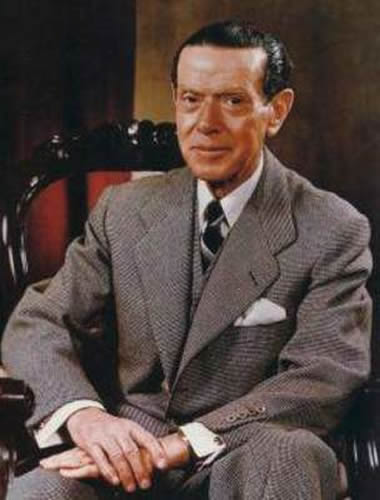
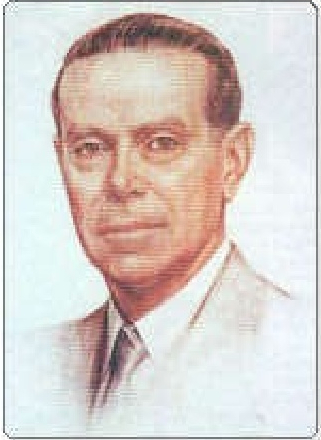
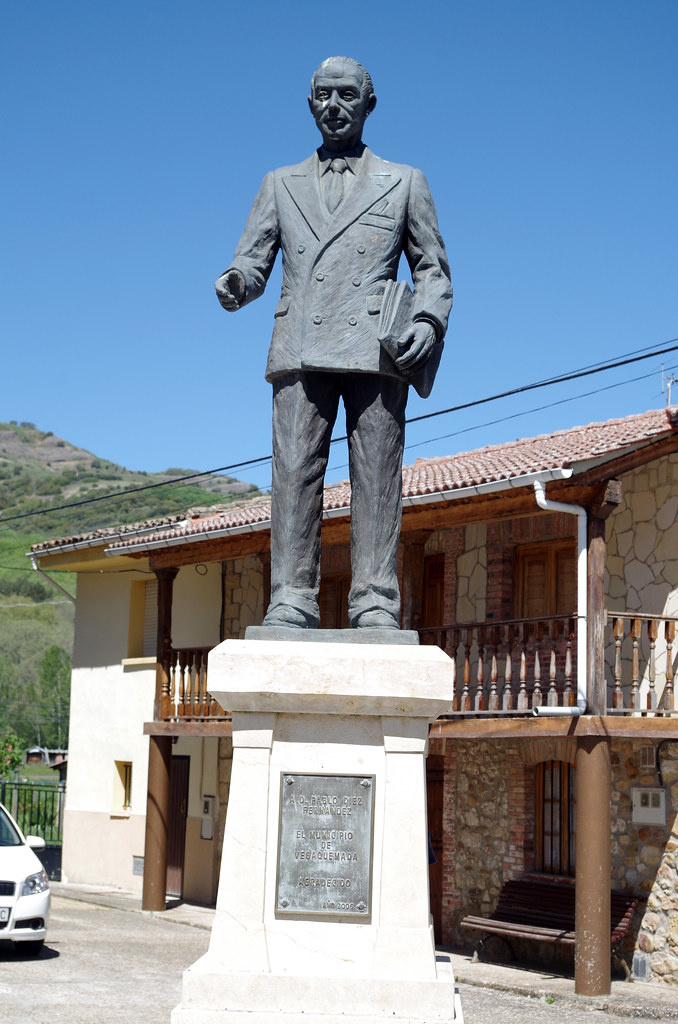


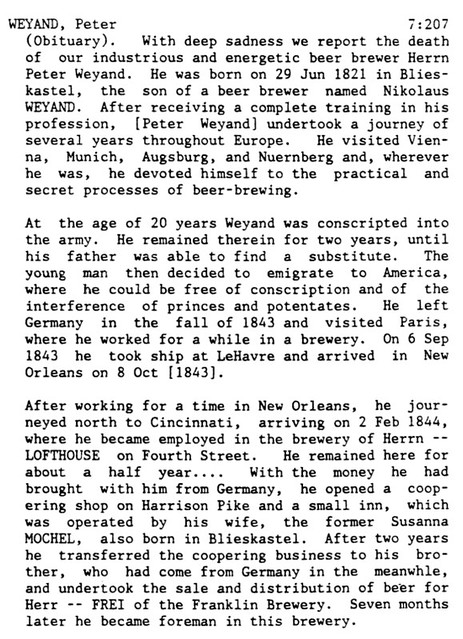
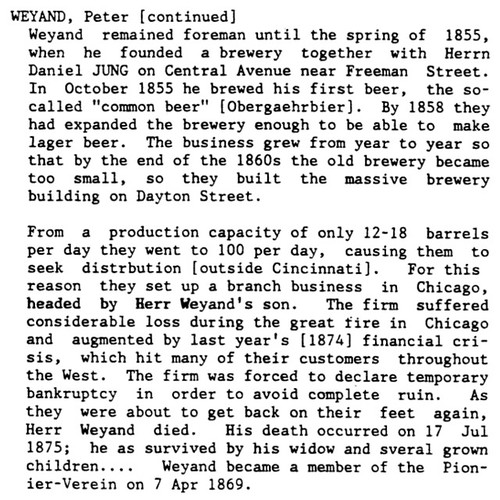
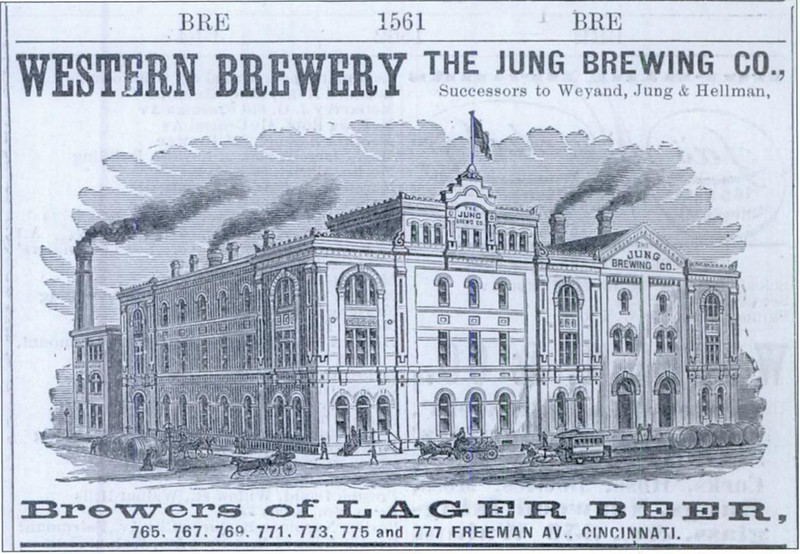



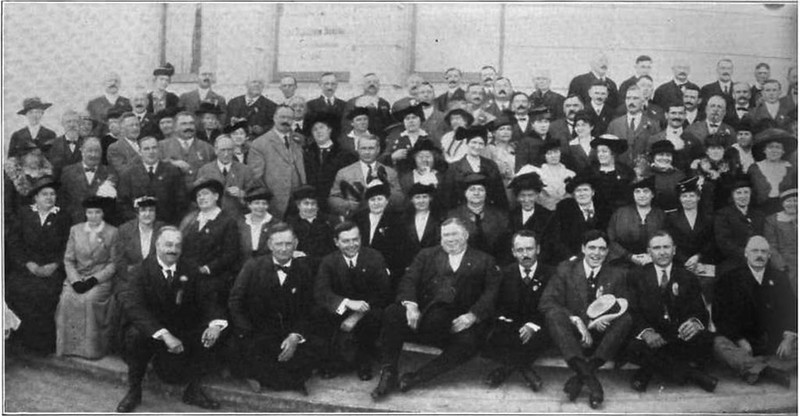
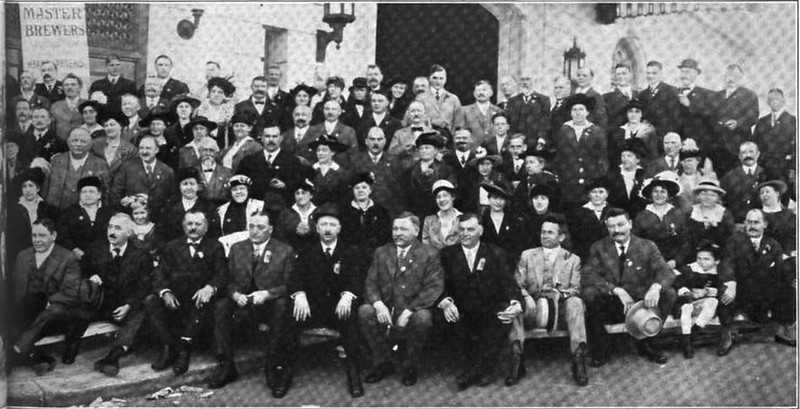





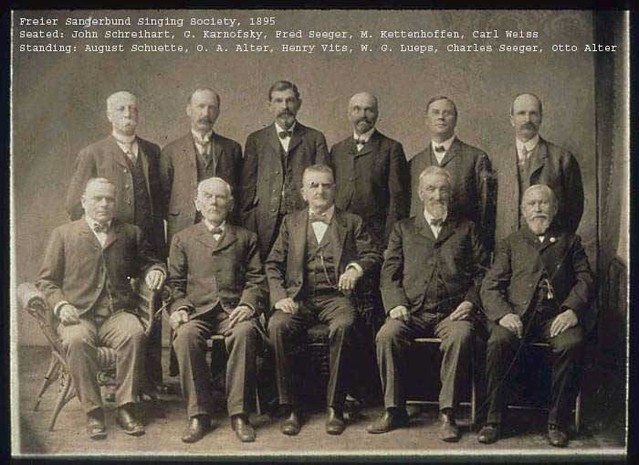 Schreihart apparently liked to sing. That’s him in the front row, seated on the left.
Schreihart apparently liked to sing. That’s him in the front row, seated on the left.